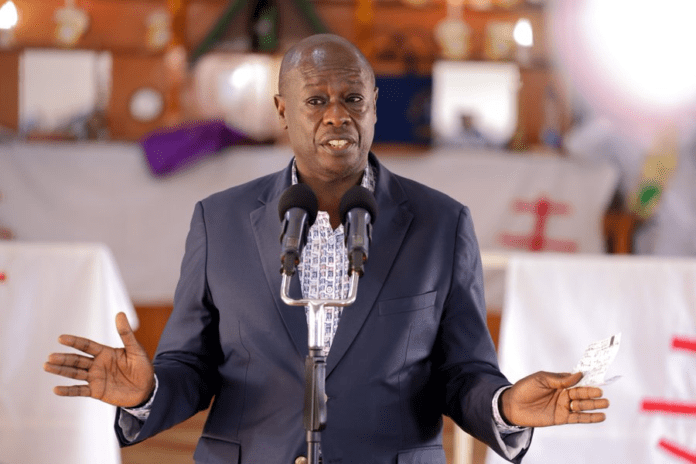Former Deputy President Rigathi Gachagua has urged the government to avoid compelling Kenyans to adopt the controversial livestock vaccination programme, calling instead for dialogue and education to address resistance.
Speaking on Wednesday during a burial in Mbooni, Gachagua criticised top government officials for insulting those opposed to the initiative. He called for a more respectful and persuasive approach, emphasizing the need to educate farmers on the benefits of the programme.
“There is no need to insult Kenyans opposed to the vaccination programme,” Gachagua said.
“Talk to them softly and convince them why vaccination is important for their animals. After all, those are their livestock.”
He urged government officials to abandon arrogance and engage livestock farmers in polite discussions, respecting their right to refuse the vaccination if they so choose.
The government plans to vaccinate 22 million cattle across the country starting January 2025 as part of efforts to combat livestock diseases. President William Ruto has defended the initiative, stating it will boost Kenya’s competitiveness in the global market for animal products.
“To ensure farmers fully benefit from international opportunities, we will implement a broad vaccination programme, using locally-produced vaccines, to reduce disease prevalence in line with global standards,” Ruto said on Sunday.
However, the programme has faced opposition from some Kenyans, who argue that they have not been adequately informed about its purpose and benefits.
The Kenya Veterinary Association (KVA) has also raised concerns, calling for the suspension of the programme to allow for public participation. KVA National Chairman Kelvin Osore said on Tuesday that the association was not consulted during the programme’s development and demanded greater transparency.
“There was no stakeholders’ engagement. We were not involved after the programme received controversy from the public. The government just rushed to us recently,” Osore said.
He questioned the rationale behind the vaccination, the diseases being targeted, and the identity of the programme’s sponsors, urging the government to give Kenyans sufficient time to understand the initiative.
Despite the resistance, the government remains determined to proceed with the vaccination drive, which it says is essential to improving livestock health and meeting international standards for animal products.







